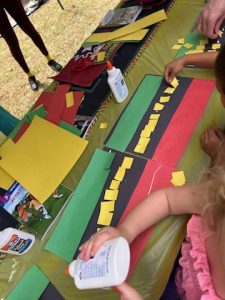By Ed Gilgor
There seems to be much confusion as to how and when to use the 911 system in Atlanta. While many of us were brought up with this being the number you call in a true, urgent emergency, as in imminent death or fire, this is not the case in the City of Atlanta and you will do yourself and your community a disservice if you don’t act accordingly.
The only way that police are dispatched in the City of Atlanta is through the 911 Operator. For everything from the most serious crime in progress, to reporting a crime that has already occurred, the 911 Operator is the person receiving the call. Each call is prioritized and police officers are dispatched based on the priority of each call.
One of the most commonly repeated incorrect statements is, “I called 911 and nothing happened.” This is rarely ever the case. However, because of the priority system listed below, not all 911 calls are treated equally, nor should they be. If you called and reported something which falls under Priority Four (see below) and then another, higher priority call comes in, the officer who was dispatched to your Priority Four call may be re-tasked to that higher priority call. Therefore, it can appear that nothing is happening with your call. One way to make sure that your call has been answered is to ask that the responding officer come to your home to speak with you.
If you see suspicious activity, call 911 to report it. If it turns out to be nothing the officer who is dispatched will rapidly make this determination and move on. However, you may prevent a crime by making that call. If in doubt, err on the side of caution and call 911.
The following “Call Priority Policy” is used by the Atlanta Police Department (APD) in the 911 Call Center:
Priority One: Immediate Emergency Broadcast. These are calls where the immediate presence of the police is essential to save life, prevent serious injury, or to arrest a violent felon. These calls may require an immediate response from any available unit regardless of assignment. These calls include: violent felonies in progress; help calls for police officers; and catastrophes such as rioting, looting, fires, explosions and severe storms and floods. Dispatch of police officers will be immediate for Priority One.
Priority Two: Emergency Response. These are calls where the immediate presence of the police may save life, prevent serious injury, prevent major property loss, or lead to the arrest of a felon. These calls require an immediate response from any available unit. These calls include: imminent threat to life or great danger; serious physical injury; major property damage; active felony or violent crime that may result in serious injury or major property damage; recent felony or violent crime where the probability exists that a suspect may be apprehended; serious injury where an officer can render immediate aid; an incident, which in the opinion of the 911 operator, demands an immediate police response, such as a sniper, a threat of an explosive device, chemical leak, or other hazardous materials; or a traffic accident that involves death, serious injury, hit and run, or impairment of the driver of a motor vehicle due to alcohol or drugs. Dispatch of police officers will be within two minutes for Priority Two.
Priority Three: Expedited Response. These are calls that require the presence of the police but do not meet the criteria for Priority Two. These calls include: active incidents that do not present a significant threat to life or property, such as minor domestic disputes or a fight that does not involve weapons; active incidents that could involve a crime, such as suspicious person or vehicle; traffic accidents that involves property damage to public vehicles or property; major traffic congestion as a result of an accident or a disturbance between those involved in an accident; or inactive crime scenes where evidence may be lost or destroyed or where witnesses might leave before they can be interviewed. Dispatch of police officers will be made within ten minutes for Priority Three.
Priority Four: Routine Response. These are calls that require the presence of police, but time is not critical. These calls include: non-active felonies, misdemeanors, or other incidents that do not require immediate investigation, such as a property crime that was not recently committed or information for an officer; a motor vehicle accident that involves property damage but does not represent a hazard to traffic; non-criminal incidents such as parking violations, traffic services or escorts; and other incidents that are not active and cannot, because of their nature, be transferred to an outside agency or to teleserve for handling by telephone or a call where a citizen has recovered property.
Officers may be dispatched on Priority One, Two, and Three calls if they are currently on a Priority Four call. Supervising Officers will be dispatched on Priority One, Two, and Three calls if the time limitations outlined are about to expire and there are no units on Priority 4 calls to be dispatched.
Priority Five: Teleserve Calls. These calls can be handled by telephone, such as most larcenies including larceny from auto; larceny of auto parts; lost or stolen checks and credit cards; lost property; abandoned vehicles; harassing, obscene and threatening phone calls; indecent exposure where the suspect is not still on the scene; vandalism; and supplemental reports. If an officer has been flagged down and is already on the scene, he or she will not transfer responsibility for the call to Teleserve.









Comments are closed.